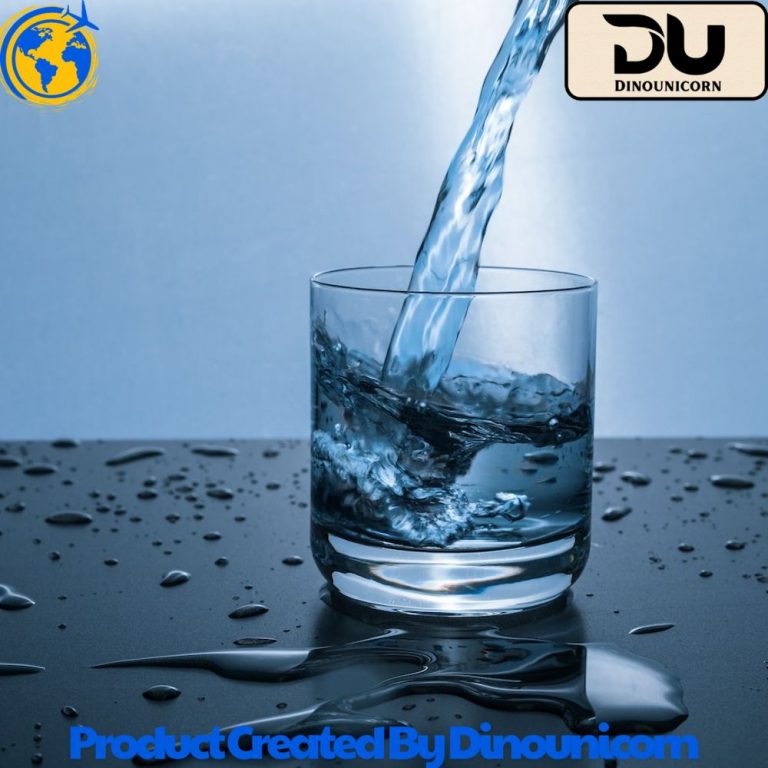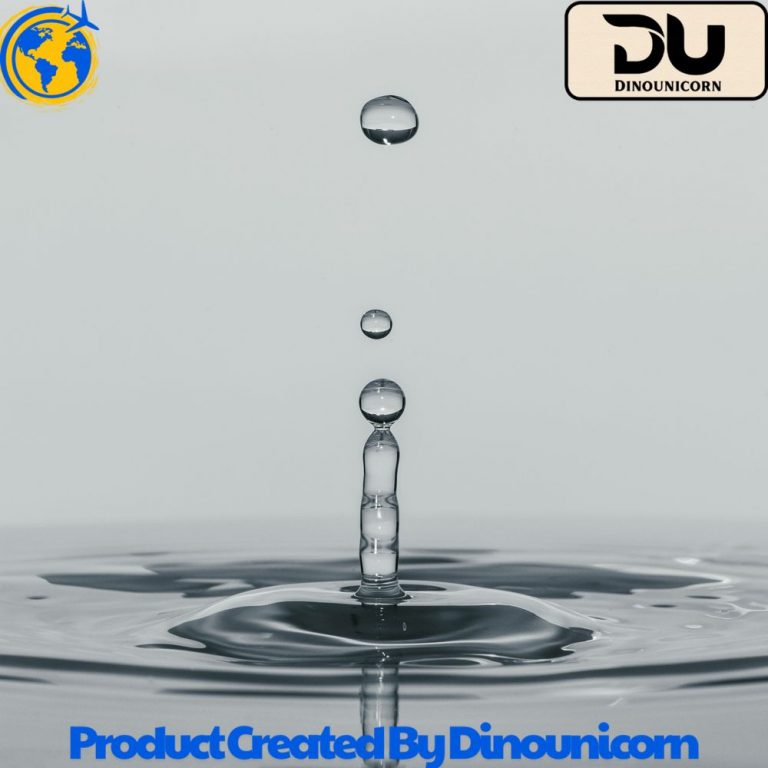Blog
Why Does Water Taste Sweet?
Why Does Water Taste Sweet? Understanding the Sweet Taste of Water
Water is essential for life, and most of us drink it daily without giving much thought to its taste. However, some people experience an unusual sensation: water tasting sweet. This phenomenon may raise questions about the nature of water’s sweetness, whether it’s a health concern, or simply a matter of water filtration systems. In this article, we’ll explore the sweet taste of water, the potential reasons behind it, and what it means for your health.
1. The Science Behind Water’s Sweet Taste
1.1 What Causes Water to Taste Sweet?
There are several reasons why water tastes sweet. The most common explanation is the presence of higher levels of calcium and iron in the water. These minerals can naturally alter the flavor of the water, making it taste sweeter than usual. Some water sources, particularly well water, tend to have higher concentrations of these minerals, which contribute to a sweet-tasting water.
Additionally, the water’s system, including its source and filtration process, plays a significant role in the water’s flavor profile. Water treatment systems, such as water filtration and water softeners, can also introduce slight changes in the taste of water, which may lead to a sweeter taste.
1.2 Sweet-Tasting Water: Is It Common?
While it’s not a universal experience, some individuals notice that their water tastes sweet. This can depend on the type of water they consume, whether it’s tap water, bottled water, or filtered water. The presence of minerals in tap water is a key factor, but water tasting sweet is not something to worry about unless other symptoms arise.
2. Why Does Water Taste Sweet in Different Situations?
2.1 Why Does Drinking Water Taste Sweet After Exercising?
If you’ve ever noticed that water tastes sweeter after exercising, you’re not alone. This can be attributed to the body’s need for hydration after a workout. When you’re dehydrated, your taste buds may become more sensitive, leading to an enhanced perception of sweetness. Additionally, during physical exertion, the body expels minerals and electrolytes, which can influence how water tastes.
2.2 Water Tastes Sweet When Dehydrated: Is There a Reason?
Dehydration can also cause water to taste sweet. When you’re severely thirsty or dehydrated, your body signals for more hydration, and the water you drink may taste sweeter as a result. Sweet-tasting water in this context might be a result of a heightened sensitivity to taste, making it feel more refreshing.
2.3 Sweet Flavor in Water After Brushing Teeth: What’s Happening?
It’s not uncommon for people to experience a sweet aftertaste of water after brushing their teeth. The sugary taste is often due to the interaction between the toothpaste ingredients and the water. Many toothpastes contain sodium lauryl sulfate (SLS), a detergent that can temporarily affect the way your taste buds perceive sweetness. This can make even plain water seem like it has a sweet flavor.

3. Water Filtration Systems and Their Impact on Taste
3.1 Does Filtered Water Taste Sweet?
Filtered water may sometimes taste sweet, depending on the filtration method used. For instance, systems like Culligan water filtration and reverse osmosis can remove contaminants and minerals from water, making it taste cleaner and sometimes sweeter. Some filters, such as those designed for tap water, can also alter the mineral content, resulting in a more pleasant taste. Learn more about Culligan water filters at this link.
3.2 Why Does Purified Water Taste Sweet?
Purified water, particularly water that has been through systems like UV filtration or distillation, often tastes cleaner because it’s stripped of most minerals. The lack of iron or calcium may cause a slight sweetness, as there are fewer elements that create bitterness or other flavors. Many users report that purified water tastes sweet compared to tap water.
4. Health Implications of Sweet-Tasting Water
4.1 Health Reasons for Sweet Water Taste
If you notice that water tastes sweet, it could be due to underlying health issues. One common cause of a sweet taste in water is a condition called diabetes, which affects how your body processes sugar. People with diabetes may experience water tasting sweet as their bodies struggle with excess glucose in the bloodstream.
For those who do not have a known health condition, there may still be non-health-related explanations for this sensation, such as high concentrations of certain minerals or changes in the water filtration process. If the sweetness persists, it’s best to consult a healthcare professional to rule out any medical conditions. You can learn more about this in Cleveland Clinic’s article Why Do I Have a Sweet Taste in My Mouth?.
4.2 Calcium and Iron in Water: How They Influence Taste
The minerals calcium and iron are often the culprits behind sweet-tasting water. These minerals can naturally alter the flavor profile of the water, giving it a subtle sweetness. While iron can cause a metallic taste, calcium is known to enhance sweetness. In water systems with higher levels of calcium and iron, this effect may be more noticeable.
If you are concerned about the sweet taste of water, it may be a good idea to use a water filter to regulate the mineral content, especially if you have a private well or live in an area with hard water.
5. What to Do If Your Water Tastes Sweet
5.1 How to Test for Sweet-Tasting Water: Methods and Tools
Testing your water’s sweetness can be done through simple home tests or by contacting local water suppliers. Water quality tests can help you understand whether your water contains excess minerals or contaminants that could affect its taste. If you find that your water tastes sweet, you can also use a water filter to remove any undesired minerals.
For more detailed information, you can check out Culligan’s guide on What Causes Sweet-Tasting Water.
5.2 Is Sweet-Tasting Water a Sign of Contamination?
While a sweet taste in water is often harmless, it can sometimes indicate contamination or an issue with the water source. For example, a sugar-like taste could suggest the presence of chemicals or microorganisms. If you suspect your water has been contaminated, it’s important to contact your local water provider or use water filtration systems designed to remove impurities.
Conclusion: Why Does Water Taste Sweet? Final Thoughts
To summarize, there are several factors that can contribute to why water tastes sweet. Whether it’s due to the natural minerals in the water, a filtration system, or even health conditions, understanding the cause can help you determine if there’s a need for concern or if it’s just a matter of taste. If your water tastes sweet, it could be related to higher levels of calcium and iron or changes in your body’s hydration status. If it persists, consulting a professional can help you get to the bottom of it.
If you’re interested in improving your water quality and taste, check out filtration systems like Culligan or consider trying a water softener to address common water taste issues.
If possible, visit dinounicorn.com or freshmilktee.com to support us.

Frequently Asked Questions (FAQs)
1. Why does my water taste sweet?
- There are several reasons, including the presence of minerals like calcium and iron or the influence of your water filtration system.
2. Can dehydration make water taste sweet?
- Yes, dehydration can heighten the sensitivity of your taste buds, making water seem sweeter.
3. What causes sweet-tasting water after exercising?
- After exercise, your body craves hydration, which can alter how water tastes due to changes in your taste perception.
4. Is sweet-tasting water a sign of a medical condition?
- It could be, especially if you have diabetes or another health issue affecting your ability to process sugars.
5. How can I fix the sweet taste in my water?
- Using a water filter or switching to a different water filtration system may help reduce the sweetness caused by minerals.
 Skip to content
Skip to content

